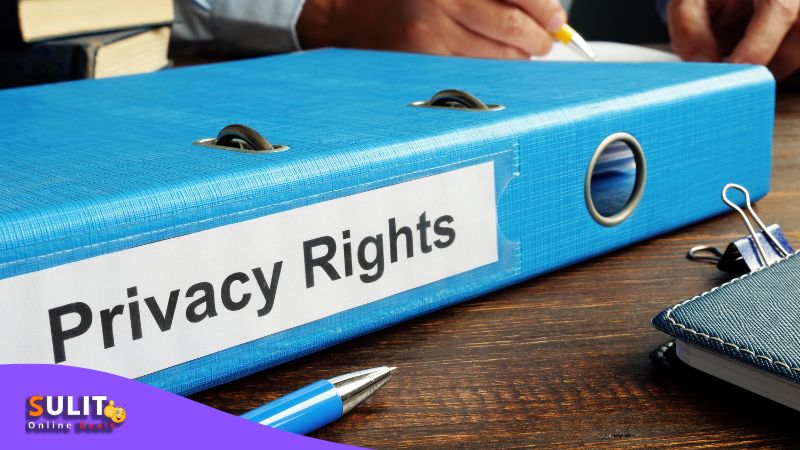Online shopping rights in the Philippines protect you from misleading information, unfair sales practices, and issues like defective products. They ensure you have options for refunds, replacements, and other remedies if things go wrong. The Internet Transactions Act of 2023 strengthens these rights, making it more important than ever to know what you’re entitled to.
In this article, I’ll break down your e-commerce rights in the Philippines. We’ll cover everything from the right to accurate information to seeking help from agencies like the Department of Trade and Industry (DTI). With this knowledge, you can shop online confidently and make informed choices!
Table Of Contents
Key Takeaways
- The Internet Transactions Act of 2023 strengthens online shopping rights in the Philippines.
- You’ve got the right to clear and accurate info on sellers, products, and prices.
- Say yes to transparency in pricing and knowing all about payment methods.
- The fine print in terms and conditions? It’s a must-read.
- Warranties and return policies? Check them before you click ‘buy.’
- Be a pro shopper: research, document, read reviews, and trust your gut.
- You’ve got the freedom to browse and choose without tricks or pressure.
- Say no to misleading tactics like fake sales, pushy upselling, or impossible promises.
- Demand fairness in trade practices: honest ads, no bait-and-switch, and clear fees.
- If things go south, you have the right to a refund, replacement, or repair.
- Data privacy is key. Businesses must protect your info by law.
- If a seller or product seems sketchy, report them to the DTI or other relevant agencies.
- Always know your e-commerce rights and use them to shop smarter and safer online.
Core Consumer Rights in Online Shopping
As an online shopper in the Philippines, you possess fundamental e-commerce rights that safeguard your interests and ensure positive shopping experiences. These online shopping rights in the Philippines are particularly important given the digital nature of e-commerce transactions. Let’s go into the most crucial one:
Right to Clear and Accurate Information
In the world of online shopping, where you don’t have the benefit of physically inspecting a product, detailed and truthful information is your most powerful decision-making tool. This right encompasses several critical aspects:
Information about the Seller
Legitimate businesses understand the importance of building trust. They make it easy to learn about their identity, their commitment to customer satisfaction, and how to reach them if needed.
Always verify the seller’s name, contact details (including email, phone number, and a physical address if they have one), and any relevant licenses or permits needed for their type of business. If you struggle to find this basic information, consider it a major red flag.
For instance, reputable electronics sellers may display certifications from brands they are authorized to sell, while food and supplement sellers may need to be registered with the Food and Drug Administration (FDA).
Product Descriptions and Specifications
Accurate and complete product descriptions are non-negotiable. Before adding anything to your cart, take the time to understand exactly what you’re getting. Pay close attention to details like dimensions, materials, key features, how it works, and any limitations or specific requirements.
For example, when buying clothing, you should be able to find specific measurements and fabric composition. Electronics listings should provide technical specifications like processor type, storage capacity, and battery life.
Transparent Pricing
You have the right to know the full cost upfront so you can make informed choices that fit your budget. This includes the product’s price, all applicable taxes (like VAT), shipping fees, and any additional charges associated with your purchase.
Avoid sellers who try to lure you in with an artificially low price and surprise you with hidden costs at checkout. While comparing prices between platforms is wise, make sure you’re comparing the total cost, including shipping and other potential fees, to get the most accurate picture.
Payment Methods
Understanding how you can pay is essential for both security and convenience. Sellers should clearly list accepted payment methods, allowing you to select the option that aligns with your preferences. Popular choices include credit/debit cards, e-wallets (like GCash, PayMaya, or GrabPay), direct bank transfers, and cash-on-delivery (COD).
COD can be particularly helpful when you’re buying from a new seller or are unsure about the authenticity of a product, as it allows you to inspect the item before payment. Always prioritize reputable payment platforms that offer buyer protection and dispute resolution mechanisms in case something goes wrong.
Terms and Conditions of Sale
The terms and conditions function as the ‘fine print’ that governs your purchase. Responsible sellers ensure these are clear, easy to find, and written in plain language.
Pay attention to key topics like shipping policies, expected delivery timelines, return procedures, refund eligibility criteria, and how to handle disputes. If the terms feel overly restrictive, unfair, or confusing, it’s often wiser to find a seller with customer-friendly policies.
Warranties and Return Policies
Most products, especially those on the pricier side or with electronic components, will come with some form of warranty protection, either from the seller or directly from the manufacturer. Before finalizing your purchase, clarify the warranty’s duration, what specific issues it covers (e.g., manufacturing defects, damage during shipping), and the process for making a warranty claim.
Also, understand the seller’s return policy. How long do you have to initiate a return? Under what circumstances is a return accepted (defective item, wrong size, simply changed your mind)? Who bears the cost of return shipping?
Tips for Exercising Your Online Shopping Rights in the Philippines
- Be a Savvy Shopper: The responsibility of gathering information ultimately falls on you. Take the time to do your research, compare sellers, and read product descriptions thoroughly before committing to a purchase.
- Document Everything: Screenshots are your best defense in online shopping. Capture images of product listings, descriptions, pricing, seller information, terms and conditions, and your order confirmation. This creates a crucial record in case you need to resolve a dispute or exercise your consumer rights in the Philippines.
- Harness the Power of Reviews: Seek insights from other buyers by carefully reading product reviews and ratings. While individual reviews can be subjective, look for consistent patterns in feedback that might reveal potential issues with the product or the seller’s practices.
- Trust Your Gut: If a deal seems suspiciously good to be true, or something feels off about a particular seller, don’t be afraid to walk away. There are many honest sellers who operate ethically and prioritize customer satisfaction.

Right to Choose
As an online shopper, you have the right to browse, compare, and make purchasing decisions freely without being subjected to deceptive practices or high-pressure sales tactics. Unfortunately, some sellers might try to manipulate your choices using various misleading strategies. Here’s how to protect yourself:
Freedom from Pressure
- Time-Sensitive “Flash Sales”: Some sellers create a false sense of urgency with countdown timers or limited-time offers, pressuring you into making a purchase without enough time to properly evaluate the product. Don’t let FOMO (Fear Of Missing Out) cloud your judgment. If a deal is genuinely good, it’ll likely still be available after you’ve taken some time to research and compare.
- Aggressive Upselling: Don’t be bullied into buying unnecessary add-ons or more expensive items you don’t actually need. Reputable sellers will present additional options clearly but ultimately respect your right to choose what’s best for you.
- Pushy Communication: Be wary of sellers who bombard you with emails, messages, or pop-ups urging you to complete a purchase you’ve abandoned. While occasional reminders can be helpful, overly intrusive tactics are a red flag.
Freedom from Misleading Tactics
- False or Exaggerated Claims: Statements like “best product ever” or “guaranteed results” without any evidence are designed to manipulate you. Take marketing claims with a grain of salt and rely on objective information and reviews to gauge a product’s true value.
- Fake Reviews and Ratings: Some unscrupulous sellers manipulate ratings by posting fake positive reviews or downvoting negative ones. Learn to spot suspicious patterns in reviews, like overly glowing language, accounts with very few reviews, or a sudden surge in 5-star ratings without much detail.
- Limited Stock Deception: Claims of “only 2 left in stock!” are sometimes used to create artificial scarcity and rush you into a decision. Verify if this is true by comparing the same product on other platforms or directly with the manufacturer.
- Social Proof Manipulation: Be cautious of statements like “Thousands of people have bought this!” that aim to play on your desire to follow the crowd. Popularity doesn’t necessarily equal quality.
- Hidden Costs & Forced Bundling: Disreputable sellers might hide fees until the final stages of checkout or force you to purchase additional items you don’t want. Always scrutinize the breakdown of your total costs, and ensure you can buy only the specific product you intend to.
Protecting Your Right to Choose
- Do Your Homework: Research is your most powerful weapon against misleading tactics. Compare products from different sellers, read reviews from trusted sources, and explore unbiased product comparisons on reputable websites or consumer reports.
- Be Skeptical of “Too Good to Be True”: If an offer seems unbelievably amazing, it often is. Extraordinary deals usually come with some kind of catch, whether it’s compromised product quality, hidden fees, or questionable business practices.
- Walk Away When Pressured: You are never obligated to complete a purchase. If a seller makes you feel uncomfortable, harassed, or rushed, simply abandon the transaction.
- Report Suspicious Activity: If you encounter a seller engaging in grossly deceptive practices, report them to the relevant platforms or agencies. For example, you can report fraudulent sellers on platforms like Shopee or Lazada or file a complaint with the DTI.

Right to Fair Trade Practices
As an online shopper, you have the right to expect honest and transparent business practices. The Philippines’ right to fair trade practices protects you from misleading tactics that could trick you into making uninformed decisions. Here’s a breakdown of the key areas where you need to be watchful:
Protection from Deceptive Advertising
Advertising should be truthful and not designed to deceive you. Be on guard against these common tactics:
- False or Exaggerated Claims: If something sounds too good to be true, it usually is! Be wary of products advertised with promises of instant results, drastic transformations, or features that seem unrealistic. For example, a skincare product claiming to “erase wrinkles overnight” is likely exaggerating its capabilities.
- Misleading Comparisons: Some sellers might unfairly put down their competitors to make their own products seem superior. Treat comparisons with skepticism unless the seller provides solid evidence to back up their claims.
- Fake Reviews & Testimonials: Dishonest sellers sometimes pay for fake positive reviews or manipulate customer feedback. It’s safer to trust verified customer reviews on established platforms, and look for consistent patterns in the feedback rather than focusing on just one or two reviews.
- Visual Manipulation: Photos and videos can be edited to make a product look more appealing than it is in reality. Be especially careful with this when buying used goods, clothing, or other items where visual appearance is important to your decision.
Avoiding Bait and Switch Tactics
This unethical practice involves luring you in with an advertised product that either doesn’t exist or is intentionally made to seem undesirable. The seller then tries to pressure you into buying a different, often more expensive item. Classic bait-and-switch scenarios include:
- “Out of Stock” Trick: A seller advertises a fantastic deal, but when you try to purchase the product, it’s suddenly unavailable. Then, they push you towards a costlier alternative.
- Disparaging the Advertised Item: The seller starts downplaying the features of the advertised product or claiming they’ve had many complaints about it, attempting to steer you towards a pricier option.
- Refusing to Honor Advertised Prices: They’ll claim the advertised price was a “mistake” and try to charge you a higher amount.
Transparency in Fees and Charges
You deserve to know the total, unambiguous cost of a product or service before you commit to buying it. Watch out for these misleading practices:
- Hidden Fees: Sellers might initially display a low price to entice you but then reveal additional mandatory fees during the final stages of checkout.
- Deceptive “Free” Offers: Be wary of “free trials” that automatically convert into paid subscriptions if you forget to cancel or “free shipping” that applies only with very high minimum order amounts.
- Unclear Payment Fees: While paying with a credit card or e-wallet can be convenient, some sellers charge additional fees without clearly disclosing them upfront. Always compare the total cost regardless of which payment method you intend to use.
How to Protect Your Right to Fair Trade
- Be a Savvy Shopper: Always approach advertising claims with skepticism. If you want to get the best online deals but they seem unbelievable, they probably are. Do your research and focus on objective information, not just flashy marketing.
- Read the Fine Print: Don’t just focus on the headline price or bold marketing claims. Read product descriptions, terms and conditions, and detailed pricing breakdowns to ensure there are no hidden surprises.
- Comparison Shop: Compare prices, offers, and seller reputations across different platforms. This helps you spot potential inconsistencies or suspiciously low prices that might be a red flag.
- Report Unethical Behavior: If you encounter deceptive advertising, bait-and-switch tactics, or hidden fees, don’t hesitate to report the seller to the relevant marketplace platform or to governmental agencies like the DTI.

Right to Redress
As an online shopper in the Philippines, you have the right to seek solutions if you receive a defective product, the wrong item, or if the seller doesn’t fulfill their promises. This right to redress ensures you’re not left with a disappointing purchase and have options to get the issue resolved. Let’s break down the common remedies:
Refund Policies and Procedures
Most reputable sellers and marketplaces have clear refund policies outlined in their terms and conditions. These policies typically cover scenarios like:
- Defective or Damaged Goods: If the product arrives broken, faulty, or significantly differs from the description, you may be entitled to a full refund.
- Incorrect Item Received: If you receive the wrong product, you should be able to return it and get a full refund.
- Change of Mind: Some sellers offer a limited “cooling-off” period, allowing you to return the item even if there’s nothing wrong with it, but you simply changed your mind. However, this is not always guaranteed and may incur restocking fees.
How to Request a Refund:
- Check the Seller’s Policy: Familiarize yourself with the seller’s specific refund policy, including return deadlines.
- Document Everything: Take photos or videos of the product defect, incorrect item, or its condition upon arrival. Keep all communication with the seller.
- Contact the Seller: Initiate the refund process by reaching out to the seller’s customer support through the marketplace platform or their official channels. Politely explain the issue and provide evidence to support your claim.
- Escalate if Needed: If the seller is unresponsive or refuses a rightful refund, you can escalate the issue to the marketplace platform’s dispute resolution system or seek help from consumer protection agencies like the DTI.
Product Replacements and Repairs
In some cases, you might prefer a replacement or repair rather than a refund. This is often the best solution for items with minor defects or if you still want the product.
Many products, especially electronics, appliances, and higher-value items, come with a warranty from either the seller or the manufacturer. This warranty typically covers repairs or replacements due to manufacturing defects within a specific period. Check your warranty terms for duration, coverage, and the process for making a claim.
Some sellers have their own repair services or partners. Make sure you understand their repair policies, turnaround time, and any additional costs involved.
Other Forms of Compensation
Beyond refunds and replacements, there might be other potential remedies depending on the situation:
- Partial Refunds: If you’re willing to keep a slightly damaged or imperfect item, you might negotiate a partial refund with the seller to compensate for the diminished value.
- Store Credit: Some sellers may offer store credit as an alternative to a direct refund.
- Resolution through DTI: If you cannot reach a satisfactory resolution with the seller directly, DTI’s mediation services may help you obtain a refund, replacement, or other forms of compensation.
Important Note: In the Philippines, the Consumer Act (Republic Act No. 7394) provides a legal framework for your right to redress. It’s always wise to familiarize yourself with the key provisions of this law for additional protection.

Right to Data Privacy and Protection
As you navigate the world of online shopping, your right to data privacy and protection is essential. In the Philippines, the Data Privacy Act of 2012 (Republic Act No. 10173) provides a legal framework that safeguards how businesses collect, use, and store your personal information.
Key Principles of the Data Privacy Act
The law is built upon several core principles:
- Transparency: Businesses have a responsibility to be open and honest about their data collection practices. They must clearly explain how they gather, utilize, and store your personal information.
- Legitimate Purpose: Companies can only collect data if they have a clear and valid reason directly related to the services they provide. For example, an online store needing your address for delivery is legitimate, but using it for unrelated marketing campaigns without your consent is not.
- Proportionality: Data collection should be kept to the absolute minimum needed to fulfill a specific purpose. This means a seller shouldn’t ask for unnecessary personal details that are irrelevant to your purchase.
Your Rights as a Data Subject
The Data Privacy Act empowers you with specific online shopping rights in the Philippines over your personal data:
- Right to be Informed and Access: You can request information about what data a business holds about you, how they use it, and who they might share it with. Additionally, you have the right to obtain copies of your personal data in their possession.
- Right to Rectification and Erasure: You can demand that any errors or outdated information in your data records be corrected. In certain circumstances, you may also request that your data be deleted entirely (known as the right to be forgotten) or temporarily blocked from further processing.
- Right to Data Portability: You can ask for your data in a structured format that allows easy transfer to another service provider if you wish to switch platforms.
- Right to Damages: If your data privacy rights are violated, you might be entitled to seek compensation for any harm suffered.
Businesses’ Obligations
The Data Privacy Act places strict responsibilities on businesses that handle personal data:
- Consent: In most cases, businesses must obtain your informed consent before collecting or processing your personal information.
- Security: They are legally obligated to implement appropriate technical and organizational security measures to protect your data against unauthorized access, breaches, or accidental loss.
- Breach Notification: In the event of a data breach, businesses must promptly notify you as the affected individual and report the incident to the National Privacy Commission (NPC).
The National Privacy Commission (NPC)
The NPC is a government agency established to enforce the Data Privacy Act. Their key functions include investigating complaints, issuing guidelines for compliance, and raising awareness about responsible data protection practices.
Protecting Your Data Privacy as an Online Shopper
- Choose Reputable Businesses: Prioritize sellers and platforms known for their commitment to data security. Look for websites with secure connections (indicated by “https” in the address bar) and clear and comprehensive privacy policies.
- Mindful Data Sharing: Be cautious about providing more information than is strictly necessary to complete a transaction. Whenever possible, use privacy-focused payment methods or consider temporary email addresses for less important purchases.
- Exercise Your Rights: Don’t hesitate to ask businesses for information about the data they hold on you. Request corrections where necessary, and remember, you have the right to request that your data be deleted under certain circumstances.
- Report Violations: If you suspect a business has mishandled your data, you can file a complaint with the National Privacy Commission (NPC). The NPC’s contact details and resources are on its website (https://privacy.gov.ph/).

Additional Online Shopping Rights and Considerations
Beyond the core online shopping rights in the Philippines we’ve discussed, there are other crucial aspects to understand for a safe and informed online shopping experience in the Philippines.
Warranty Rights (Consumer Act and Warranty Coverage)
The Consumer Act of the Philippines (Republic Act No. 7394) reinforces your right to receive products that are of good quality, free from defects, and fit for their intended use. Warranties provide a valuable safety net in case something goes wrong with a product after purchase.
Types of Warranties:
- Manufacturer’s Warranty: This warranty is provided directly by the product’s manufacturer and usually covers manufacturing defects for a specified period (e.g., 1 year for electronics and 6 months for appliances).
- Seller’s Warranty: Sellers may offer their own warranty in addition to or instead of the manufacturer’s warranty. These warranties might cover a wider range of issues or provide faster resolution within the seller’s network.
What Warranties Typically Cover:
- Manufacturing Defects: Faulty materials or workmanship that cause the product to malfunction.
- Damage During Shipping: Some warranties may cover damage that occurs while the product is in transit.
- Non-Conformity to Specifications: If the product doesn’t match the advertised description or specifications, it might be covered by the warranty.
Important Note: Always read and understand the warranty terms before purchasing a product. Pay attention to the duration, the specific issues it covers, and the process for making a warranty claim (who to contact, what documentation is needed, etc.).
Restrictions on Online Sales (Regulated Products and Licensing Requirements)
While online shopping offers immense convenience, it’s important to be aware that certain products or services may have restrictions or require specific licenses to be sold online:
Regulated Products:
- Medicines: The sale of prescription and over-the-counter drugs is regulated by the Food and Drug Administration (FDA). Online pharmacies must be licensed and may require prescriptions.
- Food and Supplements: Sellers of food products, dietary supplements, and cosmetics may need an LTO (License to Operate) or other certifications from the FDA.
- Firearms and Weapons: The sale of firearms and other weapons is strictly regulated in the Philippines and requires special permits.
- Alcohol and Tobacco: There may be age restrictions and specific regulations for online sales of alcoholic beverages and tobacco products.
Licensing Requirements
Certain businesses require specific licenses or permits to operate, even in an online setting. For example, sellers of financial products or services may need authorization from the Bangko Sentral ng Pilipinas (BSP) or the Securities and Exchange Commission (SEC).

Liability of E-Commerce Platforms (Shared Responsibility for Online Seller Actions)
Large e-commerce platforms and online shopping apps in the Philippines, like Shopee, Lazada, or Zalora, often act as intermediaries between you and individual sellers. It’s crucial to understand their role and the extent of their liability when issues arise:
Shared Responsibility
While platforms aren’t directly responsible for the actions of every seller, they have a duty to create a safe and trustworthy marketplace. This includes:
- Vetting Sellers: Platforms typically have processes to verify the identity and legitimacy of sellers before allowing them to list products.
- Dispute Resolution: Marketplaces provide mechanisms for resolving disputes between buyers and sellers, such as mediation services or refund processes.
- Proactive Monitoring: Responsible platforms engage in proactive monitoring to identify and remove fraudulent sellers or counterfeit products.
Limited Liability
E-commerce platforms generally aren’t liable for defective products or deceptive practices of individual sellers unless they were directly involved or knowingly facilitated such actions.
Buyer’s Role
It’s still imperative to exercise due diligence. Research sellers, check product reviews, and be wary of deals that seem too good to be true, even on reputable platforms.
Seeking Help and Filing Complaints
When you encounter issues like defective products, unfulfilled orders, or unfair practices by online sellers, it’s essential to know where to turn for help.
Department of Trade and Industry (DTI) as the Primary Enforcement Agency
The DTI is the lead government agency responsible for protecting consumer rights in the Philippines, including those related to online shopping. Their key functions include:
- Dispute Resolution: The DTI offers mediation services to help resolve conflicts between consumers and businesses. Their goal is to reach a mutually agreeable solution without going to court.
- Enforcement Actions: The DTI has the authority to investigate businesses that violate consumer protection laws and regulations. In cases of serious or repeated offenses, it can issue warnings, impose fines, or revoke business permits.
Online Complaint Filing Process
- Gather Evidence: Collect all relevant documentation, including order confirmations, screenshots of product listings, payment receipts, and any communication with the seller.
- Visit the DTI e-Complaint Portal: You can access this portal through the official DTI website (https://www.dti.gov.ph/) or directly at the e-commerce Complaints page ([invalid URL removed])
- Create an Account: You’ll need to register for an account to file a formal complaint.
- Complete the Complaint Form: Provide all necessary details about your purchase, the seller, the specific issue you’re facing, and your desired resolution. Attach your supporting evidence.
- Track Your Complaint: You’ll receive updates on the status of your complaint via email or through the online portal.
DTI Contact Information
- Website: https://www.dti.gov.ph/
- Consumer Hotline: 1-DTI (1-384)
Other Relevant Agencies
Depending on the nature of your complaint, other agencies might also play a role:
- National Privacy Commission (NPC): This commission handles complaints related to data privacy violations by online businesses. You can file a complaint through its website (https://privacy.gov.ph/).
- Food and Drug Administration (FDA): The FDA regulates food, drugs, medical devices, and cosmetics. If your issue involves unsafe or mislabeled products in these categories, you can report it to the FDA.
- Bangko Sentral ng Pilipinas (BSP): Handles complaints related to financial products or services offered by online sellers that require BSP authorization.
- Securities and Exchange Commission (SEC): Deals with complaints related to investment scams or illegal securities offerings that you might encounter online.
If you suspect criminal activity, such as Philippines online scams or identity theft, you should also file a report with your local police department or the Philippine National Police (PNP).
Online Shopping Rights in the Philippines: Final Thoughts
Knowledge is your most powerful weapon as an online shopper. By understanding your core Philippine e-commerce rights, the legal protections in place, and the avenues for seeking help when problems arise, you gain greater confidence.
Remember, reputable businesses value customer satisfaction and prioritize fair business practices. Your vigilance in researching sellers, reading product descriptions and terms, and exercising your online shopping rights in the Philippines contributes to a healthier and more trustworthy online marketplace for everyone.



